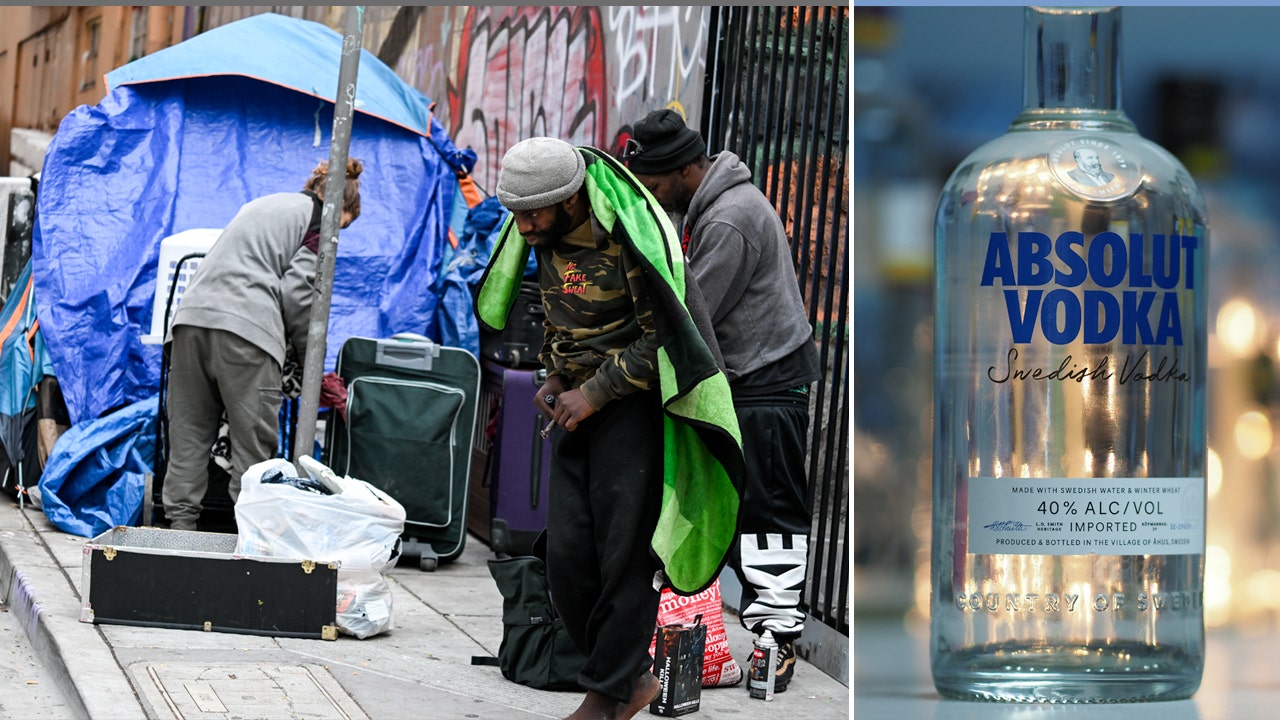The City of San Francisco is providing free beer and vodka shots to homeless alcoholics at taxpayer expense under a little-known pilot program.
The “Managed Alcohol Program” operated by San Francisco’s Department of Public Health serves regimented doses of alcohol to voluntary participants with alcohol addiction in an effort to keep the homeless off the streets and relieve the city’s emergency services. Experts say the program can save or extend lives, but critics wonder if the government would be better off funding treatment and sobriety programs instead.
“Established in countries such as Canada and Australia, a managed alcohol program is usually administered by a nurse and trained support staff in a facility such as a homeless shelter or a transitional or permanent home, and is one method to minimize harm for those with alcohol use disorder,” the California Health Care Foundation explains in an 2020 article describing the pilot program.
“By prescribing limited quantities of alcohol, the model aims to prevent potentially life-threatening effects of alcohol withdrawal, such as seizures and injuries.”
A man pours liquor from a small bottle into a glass in the evening. San Francisco has funded a pilot managed alcohol program to provide free beer and vodka shots to homeless people with severe alcoholism. (Soeren Stache/picture alliance via Getty Images)
The San Francisco managed alcohol program, or MAP, was established during the COVID-19 pandemic to prevent vulnerable homeless people who were placed in isolation in hotel rooms from suffering from alcohol withdrawal. But the program, which started with 10 beds, has since been expanded into a 20-bed program that operates out of a former hotel in Tenderloin with a $5 million annual budget, the San Francisco Chronicle reported.
Alice Moughamian, the Nurse Manger of the Managed Alcohol Program and the San Francisco Sobering Center, explained in an October presentation that nurses provide clients with a motel room, three meals a day, and enough alcohol “to meet their addiction needs, but keeping someone at a safe level of intoxication.”
Initial success in stabilizing alcoholic patients prompted health officials to expand the pilot into a long-term program with 10 beds earmarked for “the Latinx and indigenous population,” while 12 additional beds are supported at the city’s traditional sobering center, Moughamian said.
Bryce Bridge, a social worker involved with the program, said during the presentation that once a client is identified as having alcohol abuse problems and admitted, they are assessed to determine individual needs. Clients are connected to a primary care doctor, provided resources to secure government identification if they lack a social security card or other documents and assisted with psychiatric care, wellness activities on site and other evidence-based treatments.
BLUE STATE DEMS TURN ON GOVERNOR AS HOMELESS COUNCIL CAN’T ACCOUNT FOR $20B IN SPENDING
A homeless encampment is seen in the Tenderloin District of San Francisco, California, United States on June 6, 2023. (Tayfun Coskun/Anadolu Agency via Getty Images)
“We actually connect them to different community-based organizations that assist us with conducting art groups, and poetry groups and just kind of help them explore ways that they can express themselves,” Bridge said.
Bridge also said marijuana use is “fairly common in our sites” and said there is no policy prohibiting marijuana consumption, though health providers monitor that activity to prevent ill health effects or interpersonal conflicts.
While relatively unknown until now, the program is under fresh scrutiny after Adam Nathan, CEO of an AI company and chair of the Salvation Army San Francisco, made several social media posts criticizing what he witnessed at the location.
“Inside the lobby, they had a kegs [sic] set up to taps where they were basically giving out free beer to the homeless who’ve been identified with AUD (Alcohol Use Disorder),” Nathan wrote on X after visiting the hotel in Tenderloin where homeless alcoholics are served.
LOS ANGELES IN HOT WATER FOR SPENDING HUNDREDS OF MILLIONS ON WORSENING HOMELESS CRISIS
San Francisco’s managed alcohol program is run out of an old hotel on Eddy Street in Tenderloin. (Google Maps)
“It’s set up so people in the program just walk in and grab a beer, and then another one. All day,” he claimed.
“The whole thing is very odd to me and just doesn’t feel right. Providing free drugs to drug addicts doesn’t solve their problems. It just stretches them out. Where’s the recovery in all this?” he asked.
The Salvation Army promotes abstinence for alcoholics and provides free adult rehabilitation programs.
Public health officials called some of Nathan’s claims misleading. In a statement to the San Francisco Chronicle, the health department said alcohol is dispensed by a nurse and homeless people who aren’t participating can’t just walk in to the facility and get a free beer. The program operates in a former Tenderloin tourist hotel that has a bar, but on-site taps are “inoperable and unused,” the statement reportedly said.
Still, the program has also received criticism from none other than San Francisco Mayor London Breed, who said in February that harm reduction was “not reducing harm” but “making things far worse.”
San Francisco mayor London Breed has criticized harm prevention programs that provide addictive substances to substance abusers. (KTVU)
“Are we just going to manage people’s addictions with our taxpayer dollars in perpetuity forever? It seems like that’s basically what we’re saying,” said Tom Wolf, who is in recovery for heroin addiction, in a statement to the Chronicle. “I think we should be spending that money on detox and recovery.”
But recovery is not the point, according to Moughamian.
“Our goal at MAP is not to decrease the amount of alcohol that is consumed, or to taper someone towards abstinence, although both of these things have happened with clients in our program,” she said in the October presentation. “The goal is to mitigate the many health, legal and interpersonal harms associated with unsafe alcohol use.”
San Francisco health officials say the program has saved $1.7 million over six months in reduced hospital visits and police calls made by participants who previously heavily relied on emergency services. Officials said that after clients entered the program, visits to the city’s sobering center dropped 92%, emergency room visits declined more than 70%, and EMS calls and hospital visits were both cut in half, the Chronicle reported.
City officials have previously said that just five residents who struggled with alcohol addiction had cost the city more than $4 million in ambulance transports over a five-year period, with as many as 2,000 ambulance transports during that time, according to the Chronicle.
The San Francisco Fire Department has spoken positively about the program, telling the outlet the managed alcohol program “has proven to be an incredibly impactful intervention” at reducing emergency service use for a “small but highly vulnerable population.”
Other countries, including Canada, Portugal and the U.K. have adopted managed alcohol programs at a much faster pace than the U.S. Canada has more than 40 such programs, according to the University of Victoria’s Canadian Institute for Substance Use Research.
A 2022 study of Canada’s managed alcohol programs found that homeless people suffering from severe alcoholism had a reduced risk of death and fewer hospital stays after participating.
Chris Pandolfo is a writer for Fox News Digital. Send tips to chris.pandolfo@fox.com and follow him on Twitter @ChrisCPandolfo.


